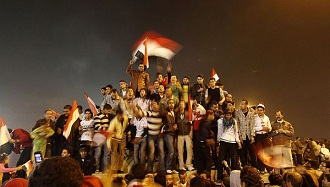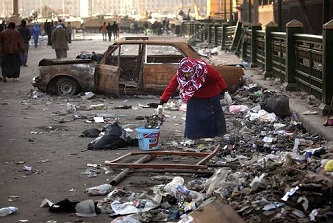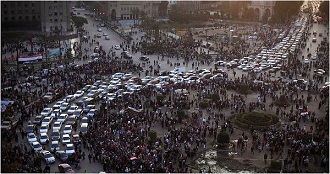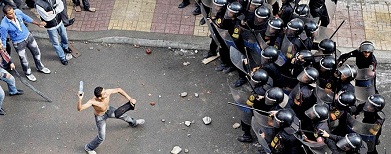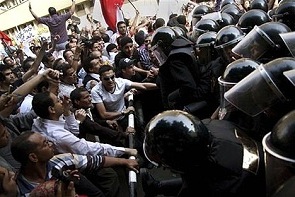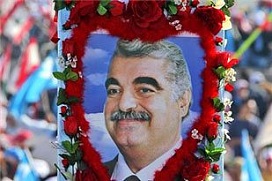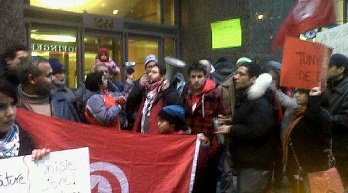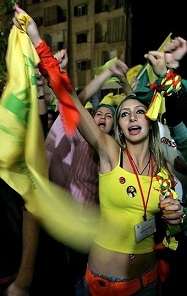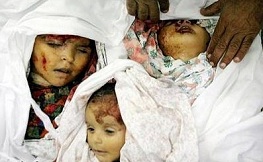Continued Middle East Uprisings and Violence
What began in Tunisia spread to Egypt, Yemen, Jordan, Algeria, Bahrain, and now Libya, Morocco, Iraq, Iran, Saudi Arabia and Kuwait. The entire region is erupting in protests, mischaracterized as revolutions. They're not, falling far short convulsive, violent, unstoppable tsunamis for change, removing old orders for new ones. So far, they're absent in the region, not even close despite popular passion for change. More on that below.
On February 20, Al Jazeera said Libya protesters want Gaddafi's 42-year rule ended. He's violently suppressing popular anger to prevent it. On Sunday night, one of his sons, Saif El Islam, warned of civil war on state television, saying "we are not Tunisia and Egypt," then gave notice about a "fight to the last minute, until the last bullet." Attempting to diffuse popular anger, however, he offered new media laws, an amended constitution, changes in the penal code, other unspecified reforms, and, unrelated to street anger, a new national anthem and flag.
On Sunday, Warfala tribal leaders, representing 500,000 Tuareg people, said they're joining the anti-Gaddafi struggle. Al Jazeera reported they've been attacking government buildings and police stations. The common thread throughout the region is poverty, unemployment, corruption and repression, varying only by degree from one country to another.
Precise numbers aren't known, but some accounts say hundreds have been killed since violence erupted a week ago. As a result, divisions in Gaddafi's government got two diplomats to resign - Libya's China ambassador, Hussein Sadiq al Musrati, and Arab League representative Abdel-Monem al-Houni. Other reports say members of Libya's military have joined protesters, and army weapons and vehicles have been seized.
Residents said at least at least 200 had died in Benghazi alone....Protests have also reportedly broken out in Bayda, Dema, Tobruk and Misrata. In the capital, Tripoli, government supporters and security forces prevented spreading anti-government demonstrations. On February 21, however, heavy gunfire was reported in central Tripoli.

























